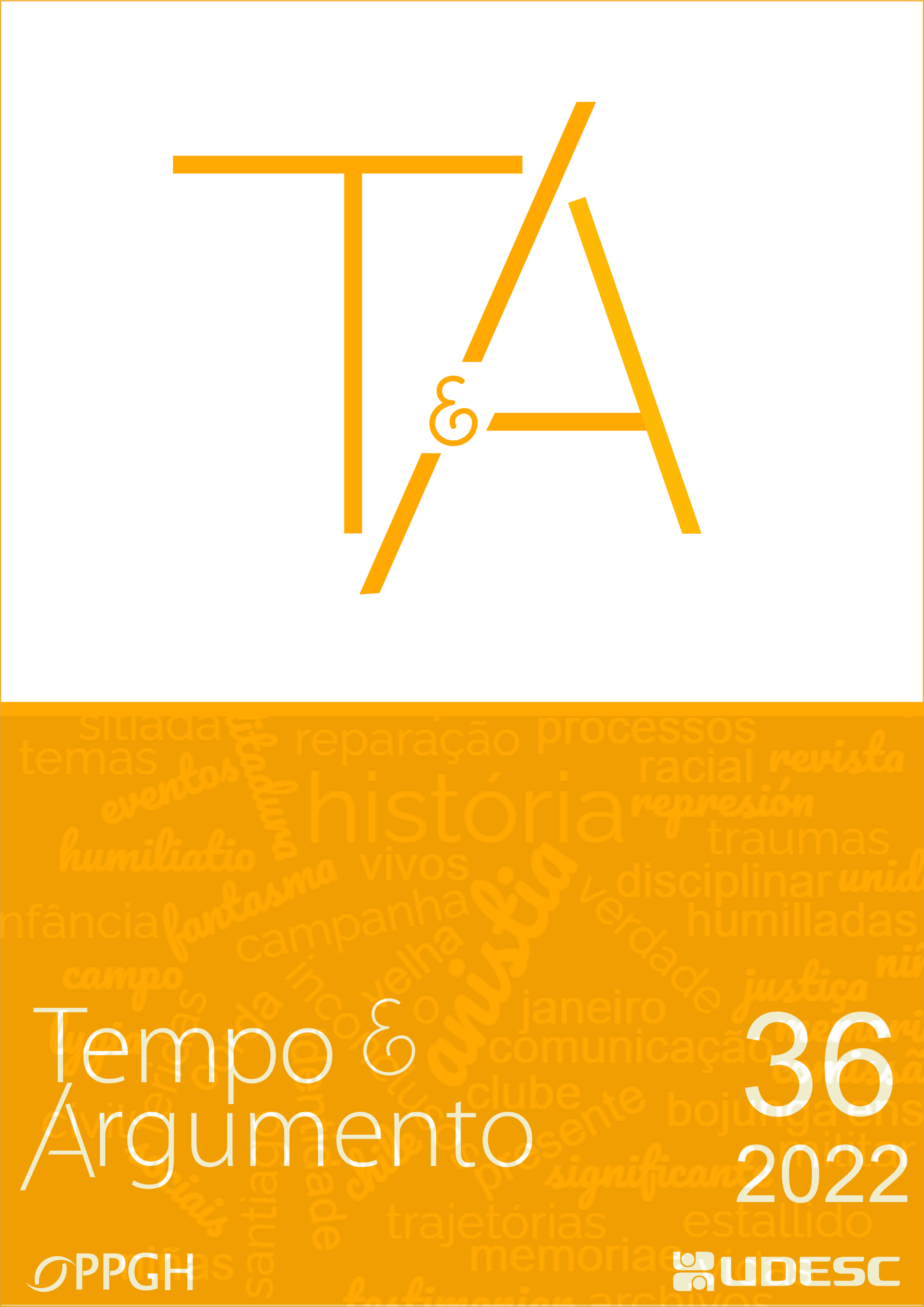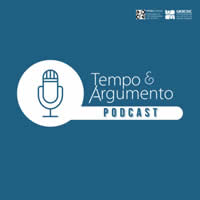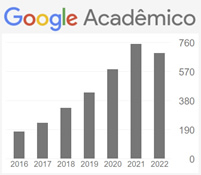Teaching the history of collective traumas and socially acute questions: trajectories of a disciplinary camp
DOI:
https://doi.org/10.5965/2175180314362022e0108Keywords:
history teaching, collective traumas, socially acute questionsAbstract
Teaching the history of collective traumas and socially acute questions was spread in historiography from the 1960s on. This contributed to dissemination of research conducted in Germany and France on the national socialist experience and the historicization of the Holocaust, whose event was framed within the field of genocide studies. In France and Brazil, reflections on this theme aimed the necessary understanding of collective traumas and their social impacts. In our analysis, reflections on these concepts are necessary due to the trivialization of the debate about historical fascisms and other collective traumas in our present time. The concerns arising from this scenario, challenging to historians and the teaching-learning process in the classroom, motivated us to present the reflections made in this article, which presented some perspectives on teaching collective social traumas and socially acute questions.
Downloads
References
ALBERTI, Verena. Controversies around the teaching of Brazilian ‘Black History’. In: KIDD, Jenny; CAIRNS, Sam; DRAGO, Alex; RYALL, Amy; STEARN, Miranda (orgs.). Challenging history in the museum: international perspectives. Surrey: Ashgate Publishing Limited, 2014. p. 201-214.
ALBERTI, Verena. Palestra. In: COLÓQUIO NACIONAL HISTÓRIA CULTURAL E SENSIBILIDADES, 4., 17-21 nov. 2014, Caicó, RN. Anais [...]. Caicó: Centro de Ensino Superior do Seridó (Ceres), Universidade Federal do Rio Grande do Norte (UFRN), 2014. Disponível em: https://bibliotecadigital.fgv.br/dspace/handle/10438/17189?show=full. Acesso em: 07 fev. 2022.
ALEXANDER, Jeffrey. Trauma: a social theory. Cambridge: Polity Pres, 2012.
ALPE, Yves. Quelle(s) légitimité(s) pour les savoirs scolaires sur la société: questions socialement vives, rapports aux savoirs et stratégies didactiques. Toulouse : Document de travail, IUFM d’Aix-Marseille, nov. 1999. Disponível em: http://journals.openedition.org/dse/95. Acesso em: 09 fev. 2022.
AYÉN, Xavi. Imre Kertész, la memoria de los campos de concentración. In: LAVANGUARDIA, [Barcelona], 2016. Disponível em: https://www.lavanguardia.com/cultura/20160331/40774053657/imre-kertesz-memoria-campos-concentracion-entrevista.html. Acesso em: 09 fev. 2022.
BAUER, Yehuda. Rethinking the Holocaust. New Haven: Yale University Press, 2012.
BIBER, Katherine. Bad Holocaust art. Law Text, Sydney, v. 13, p. 226-259, 2009. Disponível em: https://ssrn.com/abstract=1626500. Acesso em: 10 jan.2022.
BORRIES, Bodo von. Methods and aims of teaching history in Europe: a report on youth and history. In: STEARNS, Peter N.; SEIXAS, Peter; WINEBURG, Sam (eds.). Knowing, teaching and learning history: national and international perspectives. New York: New York University Press, 2000. p. 246-261.
BROWNING, Christopher. Interview: Shoah Resource Center, The International School for Holocaust Studies. In: THE MULTIMEDIA CD ‘ECLIPSE OF HUMANITY’. Jerusalem: Yad Vashem, 2000. p. 01-21.
CARNEIRO, Maria Luiza Tucci. A raça indesejável. Revista Pesquisa FAPESP, [São Paulo], n. 146, p. 12-17, 2008. Disponível em: https://revistapesquisa.fapesp.br/a-raca-indesejavel/. Acesso em: 09 fev. 2022.
CARUTH, Cathy. Listening to trauma: conversations with leaders in the theory and treatment of catastrophic experience. Baltimore: The Johns Hopkins University Press, 2014.
CERTEAU, Michel de. La culture au pluriel. Paris: Seuil, 1993.
EPSTEIN, Terrie; PECK, Carla. Research on teaching and learning difficult histories: global concepts and contexts. New York: Hunter College: City University of New York, 2015. (Caderno de Resumos)
FALAIZE, Benoit. O ensino de temas controversos na escola francesa: os novos fundamentos da história escolar na França? Revista Tempo e Argumento, Florianópolis, v. 6, n. 11, p. 224-253, jan./abr. 2014. Título original: L’enseignement des sujets controversés dans l‘école française : les nouveaux fondements de l'histoire scolaire en France ? Traduzido por Fabrício Coelho.
FINCHELSTEIN, Federico. El canon del Holocausto. Buenos Aires: Prometeo, 2010.
FRIEDLANDER, Saul. When memories comes: the classic memoire. New York: Other Press, 2016.
G1. Quem é Monark: antes de defender existência do partido nazista, apresentador foi de youtuber a podcaster. In: G1, [s.l.], 2022. Disponível em: https://g1.globo.com/pop-arte/noticia/2022/02/08/quem-e-monark-antes-de-defender-existencia-de-partido-nazista-apresentador-foi-de-youtuber-a-podcaster.ghtml. Acesso em: 09 fev. 2022.
GENSBURGER, Sarah et al. Penser les génocides et les crimes de masse avec les outils ordinaires des sciences sociales. In: PENSER KES GÉNOCIDES. Paris: CNRS Editions, 2021. p. 193-214.
GIL, Carmem Zeli de Vargas; EUGÊNIO, Jonas Camargo. Ensino de história e temas sensíveis: abordagens teórico-metodológicas. Revista História Hoje, São Paulo, v. 7, n. 13, 2018, p. 139-159.
INTERNATIONAL HOLOCAUST REMEMBRANCE ALLIANCE; ECKMANN, Monique; STEVICK, Doyle; AMBROZEWICZ-JACOBS; Jolanta (eds.). Research in teaching and learning about the Holocaust: a dialogue beyond borders. Berlim: Metropol, 2017.
ISRAELI, Raphael. Old historians, new historians, no historians: the derailed debate on the genesis of Israel. Eugene: Wipf and Stock Publishers, 2016.
KOCKA, Jürgen. Historia social y consciencia histórica. Madrid: Marcel Poins, 2002.
KOCKA, Jürgen. Para além da comparação. Revista Esboços, Florianópolis, v. 21, n. 31, p. 279-286, ago. 2014.
KOTEK, Joel. Génocide, revenir à l’essentiel? In: PENSER LES GÉNOCIDES. Paris: CNRS, 2021. p. 115-122.
LEPRINCE, Chloé. Les contre-vérités d’Eric Zemmour sur Pétain et Vichy. Radiofrance, [Paris], 2019. Disponível em: https://www.franceculture.fr/histoire/trois-contre-verites-deric-zemmour-sur-petain-et-vichy-rassemblement-national. Acesso em: 09 fev. 2022.
MALERBA, Jurandir. Os historiadores e seus públicos: desafios ao conhecimento histórico na era digital. Revista Brasileira História, São Paulo, v. 37, n. 74, p. 135-154, 2017.
MARTINS, Estevão Rezende. Consciência Histórica. In: FERREIRA, Marieta de Moraes; OLIVEIRA, Margarida Dias de. Dicionário de ensino de história. Rio de Janeiro: Fundação Getúlio Vargas, 2019. p. 55-58.
NIETZSCHE, Friedrich. A gaia ciência. Lisboa: Relógio D’Água, 1998.
NOIRIEL, Gerard. Sur la crises de la histoire. Paris: Points, 2005.
PANDEL, Hans-Jürgen. Geschichtsdidaktik eine einführung. 2. aufl. Fankfurt: Wochenschau Verlag, 2017.
POULIOT, Chantal et al. SAQ, SSI and STSE education: defending and extending “science in context”. Cultural Studies of Science Education, [s.l.]: Springer, v. 15, Sept. 2020. Disponível em: https://dialnet.unirioja.es/servlet/articulo?codigo=7813082. Acesso em 09 de fev. 2022.
ROBIN, Regine. Memória saturada. São Paulo: Unicamp, 2016.
RÜSEN, Jörn. Didática da história: passado, presente e perspectivas a partir do caso alemão. Tradução Marcos Roberto Kusnick. Práxis Educativa, Ponta Grossa, v. 1, n. 2, p. 07-16, jul./dez. 2006.
RÜSEN, Jörn. Os princípios da aprendizagem: a filosofia da história na didática da história. In: ALVES, Luís Alberto Marques; GAGO, Marília. Diálogo(s), epistemologia(s) e educação histórica: um primeiro olhar. Porto: CITCEM, Centro de Investigação Transdisciplinar Cultura, Espaço e Memória, 2021. p. 11-20.
SADDI, Rafael. Didática da história na Alemanha e no Brasil: considerações sobre o ambiente de surgimento da Neu Geschichtsdidaktik na Alemanha e os desafios da nova didática da história no Brasil. OPSIS, Catalão, v. 14, n. 2, p. 133-147, jul./dez. 2014.
SCHURSTER, Karl; DA SILVA, Francisco Carlos Teixeira (orgs.). Ensino de história regimes autoritários e traumas coletivos. Recife: EDUPE; Porto Alegre: EdiPUCRS, 2017.
SCHWEBER, Simone. Holocaust fatigue in teaching today. Social Education, [s.l.], v. 70, n. 1, p. 44-49, 2006.
SERRANO, Miguel. Nietzsche y el eterno retorno. Madrid: Rustica, 2021.
SIMONNEAUX, Jean. La démarche d’enquête: une contribution à la didactique des questions socialement vives. Paris: Éducagri Editions, 2018.
SONTAG, Susan. Sob o signo de Saturno. Porto Alegre: LPM, 1984.
THE HISTORICAL ASSOCIATION. The T.E.A.C.H. report: a report from the historical association on the challenges and opportunities for teaching emotive and controversial history. United kingdom: [The Association], Sept. 2007. Disponível em: http://www.history.org.uk/resources/secondary_resource_780.html. Acesso em: 10 fev. 2022.
WIEVIORKA, Annette. The Era of witness. New York: Cornell University Press, 2006.
Downloads
Published
How to Cite
Issue
Section
License
Copyright (c) 2022 Tempo e Argumento

This work is licensed under a Creative Commons Attribution-NonCommercial 4.0 International License.
The articles published by the magazine are for free use, destined for educational purposes and not commercial. The copyrights are all granted to the magazine. The articles whose authors are identified represent the expressed opinion of its authors and not the official position of the Tempo e Argumento magazine or of the Postgraduate Program in History of the Universidade do Estado de Santa Catarina.




